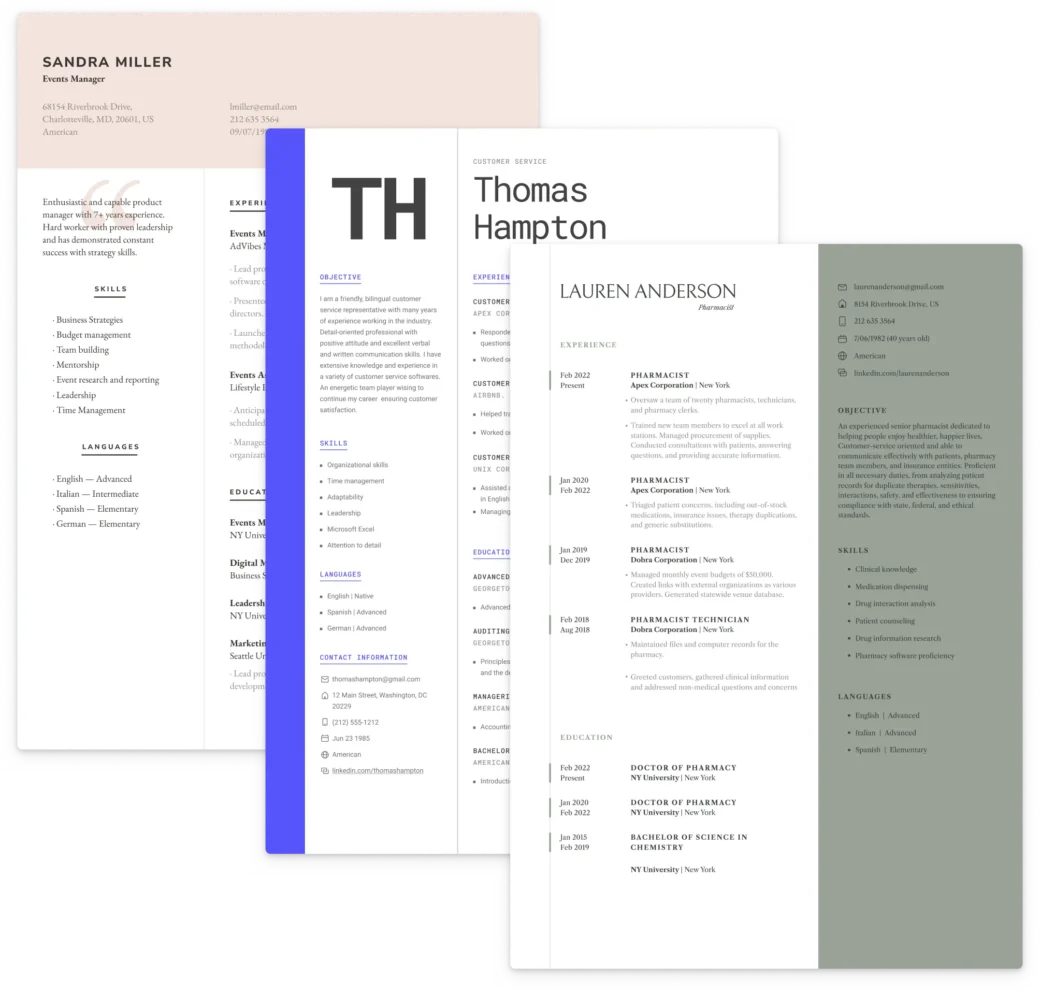As a candidate in today’s job market, you hardly ever expect to hear back from an employer. But sometimes, the stars align, and you get not one but two job offers at the same time!
Now, instead of worrying about whether you’ll ever get a job, you have to worry about which one to take and how to decline the other job offer.
While that’s definitely a good position to be in, it’s still not easy.
You want to make sure you choose the right job to support your goals and lifestyle without driving yourself crazy at work every day. So, what do you do when deciding between two jobs?
Let’s take a look!
Tips for How To Choose Between Two Jobs
It’s always good to have options, but that doesn’t mean it makes things any less complicated (as if job hunting wasn’t complicated enough).
If you can’t decide between two jobs, consider these tips to help you choose which one is right for you.
Get all the information you can
Information is power! The better you understand about the job offers, the easier the decision-making process will be.
Do your company research and find all the information you can about the jobs, employers, and the workplace environments.
Leave no tiny detail uninspected. Get both offers in writing and make a list of all the information you know about each job:
- Salary
- Start date and probation period
- Hours per week
- Overtime pay
- Vacation time
- Personal and sick days
- Family leave
- Health insurance
- Life insurance
- Performance bonuses
- Retirement accounts
- Stock options
- Profit sharing
- Signing bonus
- Frequency of raises
- Relocation funds
- Tuition reimbursement
- Discounts
- Travel stipends
- Anything that might be important to the decision-making process
Choosing between different careers is a big decision, so make sure you have enough information to make the correct choice. You never know when some tiny detail might make the difference between a rewarding career and a daily headache in the office.
Be transparent with employers
You know how annoying it is when employers don’t respond to your resume emails or leave you in the dark, so don’t do it to them, either. Whenever you have two jobs to choose between, stay in constant transparent communication with both employers.
Employers understand that you might have multiple job offers.
Telling them that you might need a few days to gather information and make an informed decision is a sign of professionalism. You’re not afraid to take on a potentially awkward situation to make the best choice, which is something employers want.
If an employer doesn’t understand that you might need some time to choose, or if they insist on an immediate answer, perhaps the job isn’t for you. That’s a big-time red flag, and it’ll make the decision quite easy!
Make a list of pros and cons
Whenever you have a big decision to make, it never hurts to make a pros and cons list.
It’s quite helpful to have a visual comparison between the two choices. They’re great for every kind of decision-making process, especially when you can’t decide which job to take!
Armed with your list of information from the first step, create a pro and con list for accepting one job and rejecting the other.
Think about more than just salary and benefits. Consider everything involved with the different careers:
- General working environment
- Location
- Commute times
- Advancement opportunities
- Company size
- Office amenities
- Business reputation
- Company culture
- Mission statement and values
- Networking opportunities
You might need to make a few different pro and con lists to reach a decision, but eventually, one list might outweigh the other, helping you choose between the two jobs.
Negotiate employment packages
The pro and con list isn’t the end-all for both jobs. Even if one job comes up a little short, that doesn’t mean you can’t negotiate a few extra points to make it the ideal choice.
When an employer sends you an offer letter, it means they want you to join their team. They might even want you badly enough to alter the job description a bit to fit your needs. It never hurts to ask!
Before accepting either job, reach out to the hiring manager and discuss your needs. Talk about any non-negotiables you might have that would make you want to work for them (and perhaps some negotiables, too).
Most employers are willing to add a few benefits to the job for the ideal candidate — especially if they know you’re considering another offer. Remember, transparency!
Trust your gut
Always dig for information to make an informed decision first, but don’t rule out your gut feelings about the positions. They’re usually right!
At the end of the day, it’s usually best to go with your gut feeling.
You’ll typically get a general feeling about which job is better for your needs and goals based on the description and the interactions between the hiring managers.
Questions To Ask When Deciding Between Jobs
Compiling all the information is a great way to make the best decision, but it’s always important to take in the information with some context.
While you’re working your way through the decision-making process, ask yourself these questions to keep you on track when figuring out how to choose between job offers.
Does this salary support my lifestyle?
Money might not be everything, but it’s still very, very important. You want to make sure your next job will be able to support your lifestyle.
If you don’t already have one, make a budget for your monthly expenses — both discretionary and mandatory.
If your top choice doesn’t meet your monetary needs, it might be time to choose another position. Or if it’s a really great fit, perhaps you should adjust your budget accordingly.
Either way, always keep the salary in the back of your mind as you consider which job offer to take. It shouldn’t make up 100% of the decision criteria, but it also shouldn’t be ruled out.
What does the career perspective look like?
Dead-end jobs are never fun. Before making a decision, consider the long-term consequences and ask yourself these questions:
- Is there room for advancement?
- What does the promotion path look like?
- How quickly can I advance?
- How far can I go with this career?
One job might seem infinitely better than the other, but if there’s no room for advancement, you could outgrow the position quickly.
According to research, 63% of people who quit their jobs in 2021 sited lack of advancement opportunities as one of the reasons.
Make sure there’s room to advance before you sign on the dotted line. If you don’t, it could force you to hit the job boards again very soon — and nobody wants that!
Does this job align with my personal interests?
Everyone has heard the old saying, “If you like what you do, you’ll never work a day in your life.” While that might not be entirely accurate, there is some truth behind the saying.
When you’re interested in your work, you feel more fulfilled in life and might even look forward to waking up in the morning!
A lower-paying job that aligns with your interests is often better than a high-paying job that might cause you to bang your head on the desk out of frustration or boredom all day. It’s not always the case, but it’s definitely a bonus to have a job that you actually enjoy.
Keep your personal interests in mind when choosing between two jobs. Just like the money question, it shouldn’t make up 100% of the criteria, but it’s definitely important.
Find the Job of Your Dreams
It’s never easy to choose between two jobs, but it’s definitely better than not getting any offers!
Before you make a decision and decline a job offer, make sure you take enough time to consider both positions and how they’ll impact your life.
Do your research and ask yourself all the questions to determine which one best fits your lifestyle and interests — and be sure to keep both employers in the loop. It might take some time, but at the end of the process, you could have a new job that you love and will support your lifestyle for years to come.
As always, choosing a new career is a big decision. If neither job seems to be a good fit, it’s always best to decline them both and keep looking, rather than get into a job you can’t stand.
The free online resume builder at ResumeGiants is always there to help you score the career of your dreams, even if it’s not one of your two offers.
With a little persistence and consideration, you’ll find the perfect job in no time!

Build your perfect resume with ease
Craft the perfect resume effortlessly with our builder. Get started today!
Related Posts

